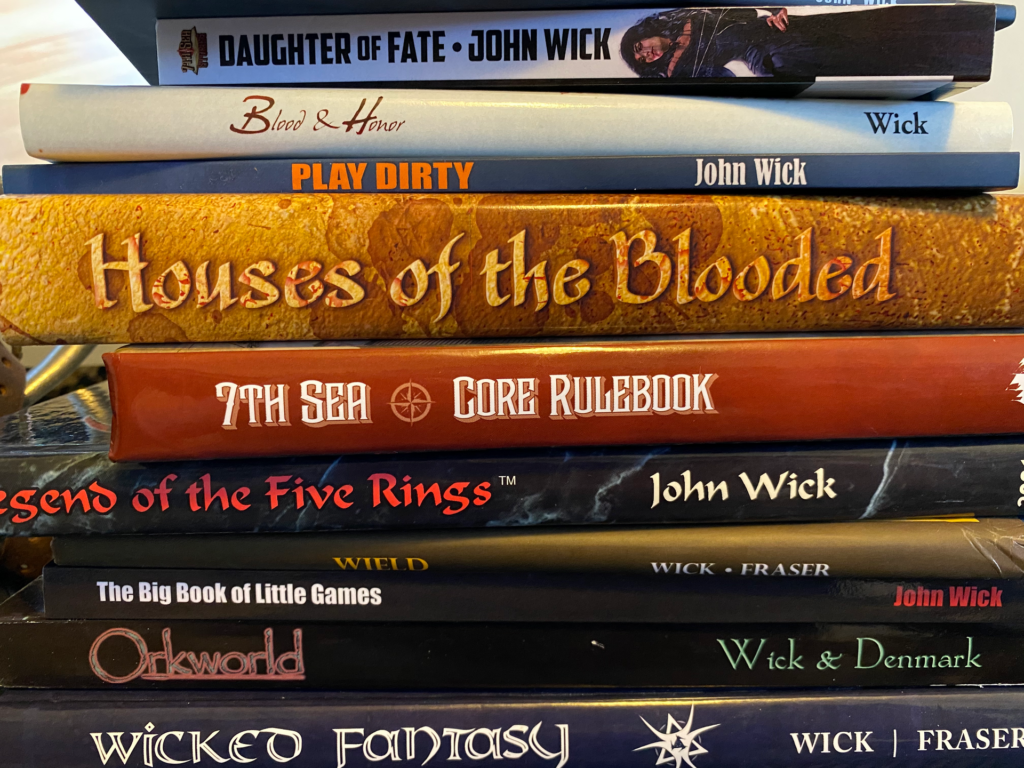
The first person I fell in love with was Wonder Woman.
In 1975, when I saw her first, I was only seven years old. Sitting in the little room where our family set up the TV, watching her on the screen, I fell in love. Now, being only seven, I had no idea what I was feeling or even why I felt it. All I knew was I felt good when I saw her or thought about her. She wasn’t the first superhero I saw—I had already been collecting comics and drawing my own by then—but she was the first woman superhero I saw. And I was in love. My first love. The first time I felt my heart beating faster, my skin tingling, my thoughts turning to her…. It had nothing to do with sex—remember, I was only seven at the time. No, I was in love.
When I got older, our relationship evolved. I started becoming more complicated and sophisticated in the things I read and as I learned about her sordid past, I understood she was more complicated than I first knew. That’s because characters like Diana are more than just characters, they’re myths.
Myths are not stoic, nor are they made of stone. They have elasticity and they can stretch. I saw Diana as a living symbol, someone who could change as the times changed. Wonder Woman is a myth, a creature of great power. A woman of great power. All at once, she can be a symbol of peace and love and she can be a warrior. She’s big enough to mean different things to different people.
Like all myths, her strength depended on the storyteller. If the voice was weak, she was weak. If the voice was strong, she was strong. Myths are like that: they need us just as we need them. And that means when we engage with them, we must do it with respect. Mishandling a myth is a lot like mishandling a weapon. Symbols have power. And Diana’s power…
…ahem. Yes. I should get back on subject.
When people ask me about characters I’ve created, they often ask me why they feel so real. And I reply, “Because I treat them that way. As if they’re real.” When I wrote The Last Kachiko Story, I cried. I told my (then-)wife Jennifer, “It’s the most cruel thing I’ve ever done to a character.” There’s a moment in Daughter of Fate that broke my heart when I wrote it and every time I read it. (If you’ve read the book, it’s when Ignacio asks Elena to dance.)
Ideas are real. At least, as real as us. Even if they’re only electricity flashing through our brains, the electricity is real. The signals being passed from brain cell to brain cell are real.
Diana is real. She’s impacted and influenced my life in so many ways, there’s not enough space in the world to tell you how. But she’s just as real as me, just as real as you, just as real as anyone else.
I try treating my characters with profound respect, even the ones who don’t deserve it.
So, when I see characters I love mishandled—such as the gross and ignorant portrayal of Kal-El in Man of Steel—I feel like someone has taken a crap on a friend’s head. Or that someone slapped them and said, “You’re welcome” and walked away. I take it personally. Both as a fan of the genre and as a storyteller.
I tried explaining this to a friend of mine who told me I was taking things too seriously. “It’s just a story,” he said. My friend happened to be a Christian. I told him, “How about I make a movie called Jesus of Nazareth about a guy named Judas who’s the King of the Jews. He gets betrayed by this guy named Jesus who betrays him so he can sleep with Judas’ wife Mary Magdeline and that’s how the movie ends. Judas on the cross and Jesus and Mary humping like rabbits.”
His eyes got big. His mouth just opened wide. And I said, “It’s just a story. Don’t take it so seriously.”
And yes, Diana means that much to me.
Myths may be elastic, but if you stretch them too far, they snap. You can’t pull them beyond recognition. Otherwise, why are you using the myth in the first place? That’d be as silly as making a movie out of Heinlein’s Starship Troopers and making it a parody of the book you were…
…yeah.
Or making a Superman movie where the whole idea of Clark being a farmkid from Kansas with the ultimate power set is thrown out the window so you can tell a story about an Ayn Rand übermensch who…
…yeah.
Ahem. Yes. I should say what I wanted to say.
I saw Wonder Woman tonight. Saw Diana in her new garb. And I don’t mean the costume. Paid my money down, sat with my popcorn and Coke and watched the screen.
And I remembered exactly why I fell in love with her in the first place.
A myth is only as powerful as the storyteller. And in this case, the tag team of Patty Jenkins and Gal Gadot knocked me down and out for the count. My first love found herself two storytellers who treated her with dignity, respect, and most importantly, with love.
I can’t wait to see it a second time.
